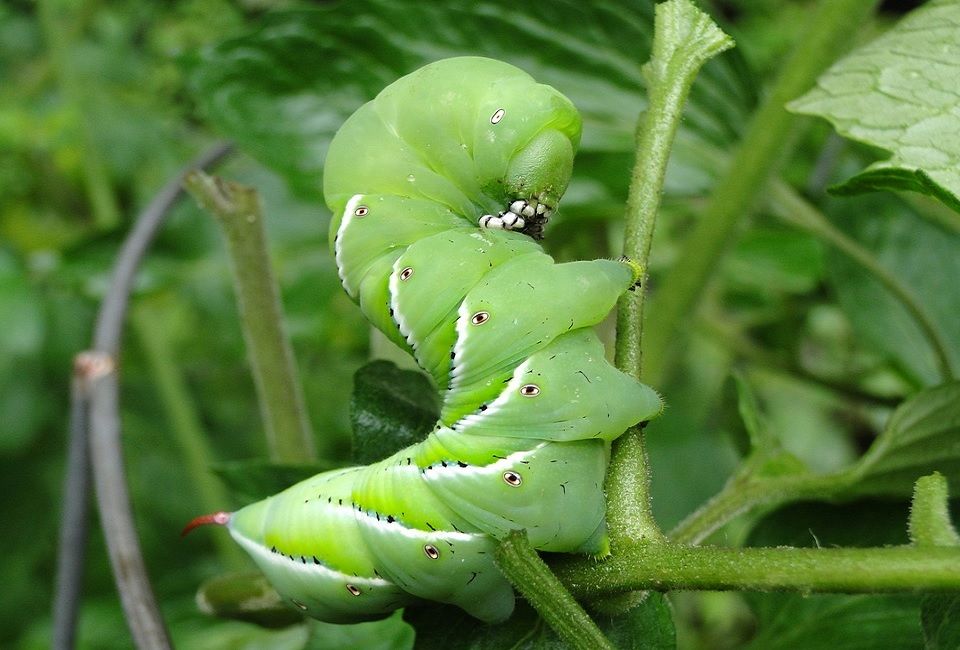African daisies, with their vibrant colors, are a beautiful addition to any garden. However, these delicate flowers often fall prey to voracious caterpillars that can quickly destroy the foliage. If your African daisies are under siege from these crawling menaces, don’t despair. In this comprehensive guide, we’ll explore some highly effective organic methods to get rid of caterpillars and protect your precious blooms.
Identifying Caterpillars on African Daisies
The first step is learning how to spot caterpillars on your plants Watch out for these telltale signs
- Holes in leaves or petals
- Chewed or ragged edges on foliage
- Entire leaves eaten
- Presence of caterpillars on undersides of leaves or flowers
- Black or green excrement on plants
Caterpillars can be green, brown, or brightly colored. They have long segmented bodies and multiple legs. If you see any of these symptoms, it likely indicates caterpillars munching on your African daisies.
Eco-Friendly Ways to Get Rid of Caterpillars
Once you’ve confirmed the presence of caterpillars, it’s time to take action. Here are some organic, non-toxic methods to eliminate them naturally:
Handpicking
Manually removing caterpillars by hand is an easy and effective solution. Simply check your plants regularly and pick off any caterpillars you find. Drop them into a container of soapy water to kill them. Be sure to check under leaves for hiding caterpillars.
Sprays
Insecticidal soap sprayed directly on caterpillars will kill them on contact. Spray both sides of leaves and around buds.
Neem oil acts as an organic pesticide. The azadirachtin it contains disrupts caterpillars’ hormonal balance. Mix with water and spray on infested areas.
Bt (Bacillus thuringiensis) spray contains bacteria that target caterpillars but are safe for humans. When caterpillars ingest it, it damages their digestive system ultimately killing them.
Garlic spray repels caterpillars with its strong odor. Blend chopped garlic cloves with water, let sit overnight, strain and fill a spray bottle. Coat African daisy leaves thoroughly.
Natural Predators
Releasing beneficial insects like ladybugs, lacewings and parasitic wasps can provide natural caterpillar control. They prey on eggs and larvae. You can buy them from garden supply stores to unleash on your plants.
Diatomaceous Earth
Sprinkling this powdery limestone on the soil and around your African daisies cuts and dehydrates soft-bodied caterpillars when they crawl across it. Completely safe for humans.
Preventing Future Infestations
Along with eradicating existing pests, implementing some ongoing practices can help avoid caterpillar problems in the future:
- Remove and destroy heavily infested plant parts
- Apply row cover fabric over plants to create a physical barrier
- Clean up debris around plants that can shelter caterpillars
- Encourage predatory insects like birds and wasps that feed on caterpillars
- Rotate African daisies each year to different garden areas
The Bottom Line
A caterpillar invasion can quickly ravage your beautiful African daisies. With the organic control methods outlined above, you can get rid of these pests and protect your flowers without using toxic chemicals. Be vigilant about checking for early signs of infestation. Take prompt action at the first sight of chewed leaves before caterpillars have a chance to multiply and consume your precious blossoms. Implement preventive measures to deter future caterpillar problems. With this comprehensive battle plan, you can defend your African daisies and enjoy their vibrant blooms caterpillar-free.

k
Control Catepillars In The Garden Organically And Effectively
FAQ
How do I get rid of caterpillars without killing my plants?
How do I get rid of caterpillars in my flower beds?
Does vinegar kill caterpillars on plants?
Can plants recover from caterpillars?
What plants repel caterpillars?
Certain plants will naturally repel caterpillars and other pests . Peppermint, lavender, mugwort, and sage are some of the most potent plants that repel garden caterpillars. Therefore, incorporate these plants into or around your vegetable garden or flower bed to help deter caterpillars.
How do I Keep my Daisy Flowers from pests?
Organic solutions are a great way to protect your daisy flowers from pests without using harsh chemicals. Diatomaceous earth, beneficial nematodes, and a vinegar and dish soap mixture can all be used to help control pests and keep your daisy flowers safe. Diatomaceous earth (DE) is an effective solution for controlling pests in your garden.
How do I get rid of caterpillars in my garden?
Funnel the solution into a spray bottle and spritz caterpillars liberally. Don’t use this on orchids, squashes, or hairy-leafed plants. Vinegar spray: A vinegar and water solution will kill and repel most garden pests, including caterpillars. Mix two tablespoons of vinegar with 1 gallon of water, and spray wherever you’ve seen caterpillars.
Does soapy water kill caterpillars?
An inexpensive remedy to stop little green caterpillars from eating your plants is soap and water. Completely dissolve a small amount of organic liquid soap in warm water. Next, pour the solution into a spray bottle. Finally, spray your vegetables, nasturtiums, roses, or whichever plants they are eating.
